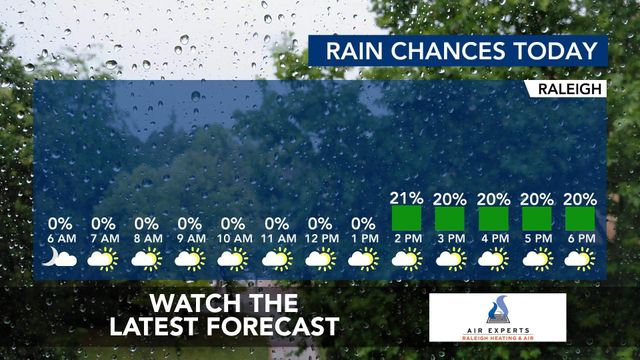Cooper sues over new GOP-backed election rules he says will 'undermine fair elections' in NC

North Carolina Gov. Roy Cooper sued Republican legislative leaders Tuesday, saying recent changes in elections law are unconstitutional.
It's at least the fourth lawsuit filed in recent days challenging new Republican-backed laws aimed at changing the rules for elections in North Carolina ahead of the 2024 presidential election. Also Tuesday, a number of voting rights groups sued North Carolina officials over the state's new voting laws, adding to two other lawsuits this month.
The lawsuits are targeting two different new laws. One, which passed the legislature along party lines as Senate Bill 749, enacts major changes to the State Board of Elections and all 100 county elections boards by stripping away Cooper's power to appoint a majority of the board's members. Instead, the boards will now be made of an even number of Republicans and Democrats, all appointed by the state legislature instead of the governor.
GOP leaders said the law is needed to make sure that voters don't think elections are being manipulated by whichever party controls the governor's office.
“We don’t want folks to look at it and think that fraud occurred, that something improper occurred,” Rep. Destin Hall R-Cabarrus, said during a legislative debate over the bill last month. “But it’s not hard to see how folks might think that there are problems in our elections, when the very entity that’s overseeing them has a partisan lean.”
Critics say that's not a real concern, noting that Cooper beat incumbent Republican Gov. Pat McCrory in 2016 when McCrory controlled the elections boards — and that Republicans then won major elections in North Carolina in 2020 and 2022, including for president and U.S. Senate, when Cooper was in control of the elections boards.
The real intent of the law, say critics including Cooper, is to cause tie votes on important issues such as where to staff early voting sites, which allegations of fraud or campaign finance violations to investigate, or even whether to certify election results.
"The deadlocks that will be created on these new Boards of Elections at the state and local levels likely will reduce early voting and create longer lines at the polls," Cooper said in a statement Tuesday. "It will also undermine fair elections and faith in our democracy by sending disputes to our highly partisan legislature and courts."
A similar proposal for overhauling the elections boards was ruled unconstitutional by the North Carolina Supreme Court as recently as 2017. The idea was also rejected by voters statewide in 2018, when GOP lawmakers tried amending the constitution after their loss in court. Republican legislative leaders have said they think they'll win in court this time around, however, now that the state Supreme Court has a Republican majority instead of a Democratic majority.
Spokespeople for GOP leadership at the statehouse didn’t immediately respond to a request for comment on Cooper's lawsuit Tuesday, nor did they respond to requests for comment on the suit brought by voting rights groups. They also haven't commented on other, previous lawsuits against the same new changes.
Three lawsuits target another 2024 change
The voter rights groups' lawsuit, filed Tuesday by the League of Women Voters of North Carolina, Democracy North Carolina and the North Carolina Black Alliance, targets a different bill that also passed along party lines at the legislature: Senate Bill 747. That bill number, and the fact that it contains many changes to state elections laws, led Senate minority leader Dan Blue, D-Wake, to call it a "jumbo jet of voter suppression."
The lawsuit makes similar claims, focusing in particular on one of the new laws in SB 747: Changes to the state’s same-day registration law that it says discriminate against young people, who are more likely than other voters to register and vote on the same day. The group named members of the North Carolina State Board of Elections, who administer the state's elections laws, as defendants.
The law “places the fate of a ballot cast using same-day registration on whether a single piece of mail reaches that voter,” the League of Women Voters said in a news release. “If that piece of mail goes undelivered — by accident, negligence, or otherwise — the voter’s ballot is thrown out and their registration is canceled, with no notice provided and no opportunity for the voter to be heard.”
A spokesperson for the state elections board said the board will respond via court filings to this litigation and other lawsuits.
Before the law, part of Senate Bill 747, the state would mail people who use same-day registration twice to validate their address. The law also used to allow for "a challenge hearing or other opportunities to be heard," but those protections were gutted by the new changes, the lawsuit states.
The new rules passed in SB 747 — which include the same-day registration changes, a new requirement that mail-in ballots arrive by election day and significantly looser rules for partisan poll observers — have also triggered a lawsuit from the Democratic National Committee and another filed by Voto Latino and Down Home North Carolina.
House Speaker Tim Moore and Senate leader Phil Berger asked in court Monday to be added to those lawsuits, saying they don't trust Attorney General Josh Stein, a Democrat, to defend the Republican-backed law. They cite statements by Stein, who is running for governor in 2024, calling it a “voter suppression” effort pushed by “far-right politicians in the legislature."
Those earlier two lawsuits, filed the same day Republican lawmakers overrode Roy Cooper’s veto of the bill, challenge a number of elements in the new law, including the same-day registration change. Now that three different lawsuits challenge SB 747, it's possible some or all of them could be consolidated.










